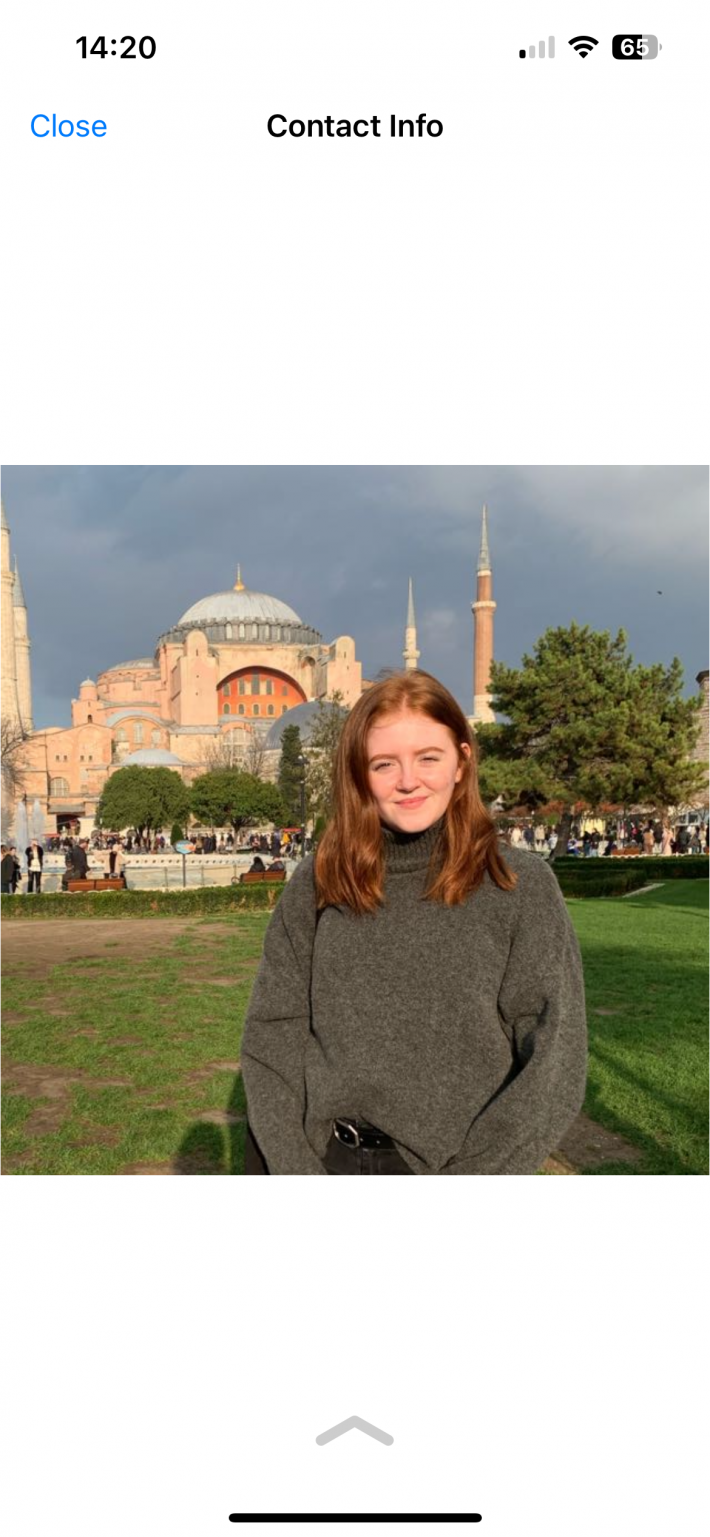Walking around Istanbul, it’s hard not to feel connected to the incredibly diverse history which has moulded this city. Coexisting around every corner are elements of Byzantine and Ottoman, traditional and modern, secular and religious, reminiscent of the various positions the city has held over the years. While Istanbul, and particularly its port, has continued to play an important role in the development and modernisation of Türkiye, the city hasn’t lost its charm, and to step into the palace grounds, wander Sultan Ahmet Park, or climb to Galata Tower gives breathtaking views of history so proudly acknowledged and preserved here.
The opportunity to hear from several academics from local universities was an important asset to our trip, and insights into ‘Kemalism’ offered in our first lecture helped explain the visible role of patriotism within Istanbul. Through an intensive nation-building project, Mustafa Kemal Atatürk framed the new republic of Türkiye around pillars of nationalism, state-control and domestic industrial strength. It’s clear as you walk the streets, passing Turkish flags and posters of Atatürk at each turn, that this vision of patriotism and unity has had a lasting effect on Istanbul’s contemporary society.
Looking forward, our final lecture highlighted the significant role of women in the current national project of Türkiye. Under Erdoğan’s administration, family dynamics appear centred on traditional roles – shown through programmes which support remote working and domestic labour for women, alongside financial incentives to marry young and create a large nuclear family. To Erdoğan, women will be essential in the growth of Türkiye’s population, and subsequently its global influence, however women’s position as equal participants in society may suffer as a consequence.
Travelling as a large group, we were truly able to transport the classroom overseas, bringing a great range of opinions and perspectives to the trip. In fact, some of the fondest moments from my time in Istanbul were conversations shared with a number of new colleagues and friends, whilst exploring the city or unwinding in the hotel lounge. In this welcoming group dynamic, topics such as religion, poverty, gender and academia were open for discussion and debate, creating a fantastic space to exchange experiences and ideas.
My journey to Istanbul was a trip I will treasure for a very long time, full of unique cultural experiences and surprises, and the chance to gain a first-hand account of some of the theories and concepts we study back at home. I am incredibly grateful for the opportunity to discover a city which had once felt entirely foreign and unknown to me, but is now a place I can’t wait to revisit.
Rebekah Dugdale
